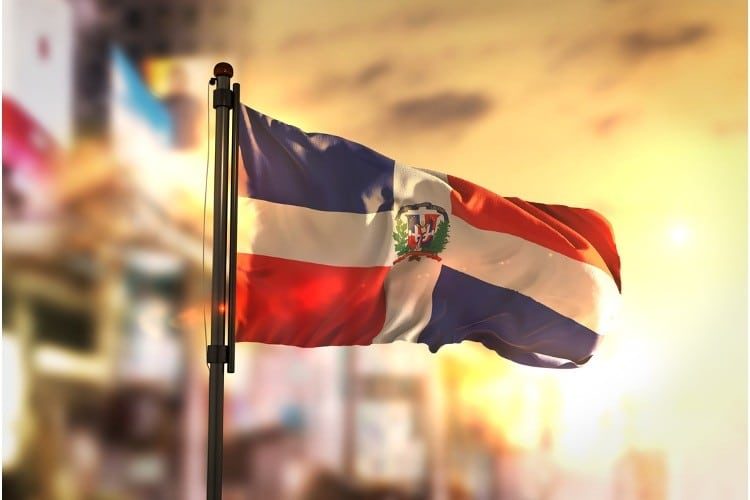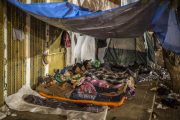
A left-wing push for the decriminalization of abortion in the Dominican Republic is garnering support for pro-abortion activists internationally, particularly in New York City.
Since mid March, hundreds of abortion advocates have been protesting outside the executive mansion of Dominican President Luis Abinader over his failure to fulfill promises he made to the abortion lobby on the campaign trail.
As a candidate, Abinader said he would support a change to the country’s total ban on abortion by adding exemptions for three conditions: when the mother’s life is threatened, when the pregnancy is not “viable,” and in cases of rape or incest.
Abinader doubled down on his support for these changes during an interview with the newspaper El País in December. This prompted backlash from a number of pro-life groups, including the Catholic Church. As a result, the president backed down, saying instead that he was “not going to impose his personal opinion” on other lawmakers.
This seeming about face triggered the protests, which have been picked up by the pro-abortion Dominican community in New York.
“What bothers me is seeing how everybody wants to legislate our bodies, women’s bodies. It’s like the first thing in their agenda is to control women. That’s not right. We need to change that — who tells a man when to get a vasectomy? Nobody,” Zenaida Méndez, who has been mobilizing Dominicans in New York City around the issue, said.
The protesters claim that the total ban on abortion puts the lives of women at risk. Méndez is also a founder of the National Dominican Women’s Caucus.
These activists hold up the case of Rosaura Almonte, 16, who reportedly died of leukemia in 2012 because doctors would not administer chemotherapy because the was pregnant and the therapy would have harmed her child.
Almonte’s mother, Rosa Hernández, is among the activists who has been demonstrating outside the executive mansion. The “laws in my country put the value of her pregnancy above the value of her life,” she wrote in an April 7 op-ed.
The Dominican Republic is among a small group of Latin American and Caribbean Nations — which also includes El Salvador, Haiti, Honduras, Jamaica, and Nicaragua — that prohibit abortion under any circumstances.
Currently, the country’s penal code punishes women who induce abortions with up to two years in prison; abortionists face up to 20 years in prison.
The current movement to loosen the Dominican Republican’s abortion laws is known as “#LasCausalesVan, which refers to the above-noted three circumstances under which they believe abortion should be legal.
The movement is made up of a broad coalition of left-wing political groups, such as Articulación Nacional Campesina (National Peasant Articulation), a network of 100,000 small agricultural businesses.
“To decriminalize abortion is to end injustices,” Yova Sánchez of Articulación Nacional Campesina said in a press conference on Tuesday.
Abortion advocates say that because of current law, women carrying undesired children end up having to choose between going forward with carrying their baby to term or seeking out an abortion elsewhere. The latter option means either traveling to a country where abortion is legal, or if they don’t have the money for that, getting a clandestine abortion, which pro-abortion activists say endangers their lives.
“Some suffer serious health complications, and even death, from unsafe abortion,” wrote Human Rights Watch in a 2018 report. “An estimated 25,000 women and girls are treated for complications from miscarriage or abortion in the public health system in the Dominican Republic each year.”
Human Rights Watch also claims that complications from abortion or miscarriage account for at least eight percent of maternal deaths.
Last month, a group of presidential advisors made the recommendations to decriminalize abortion under the three circumstances to lawmakers at a justice commission. But legislators at the commission rejected the recommendation, proposing instead to allow abortion only in cases where the mother’s life is threatened.
Lawmakers and upholders of the right to life would do well to consider that when dealing with the Left, no amount of appeasement is ever definitive and no olive branch is conclusive. Today’s activists may say they only want abortion decriminalized in cases of rape, non-viability, and risk to the mother’s life. If these are granted, then tomorrow they will seek to expand access to abortion with new “exceptions.”



